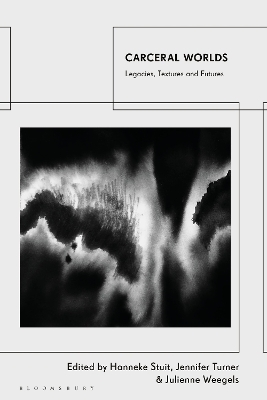
Carceral Worlds
Bloomsbury Academic (Verlag)
978-1-350-29806-4 (ISBN)
Carceral Worlds focuses on carceral practices, experiences and imaginaries that reach far beyond traditional spaces of confinement. It shows the lasting effects of colonial carceral heritage, the influence of prison systems on city management, and the entrapping nature of digital infrastructures. It also discusses new urbanized forms of migrant detention, the relation between prisons and homelessness, the use of carceral metaphors in the everyday, and the carceral implications of the uneven distribution of climate risk across the globe.
The volume brings together work from scholars across the world and from a variety of disciplines in the social sciences and humanities, offering a fresh approach to the carceral as a central vector in modern life.
Hanneke Stuit is Assistant Professor of Literary and Cultural Analysis and Postdoctoral Researcher at the University of Amsterdam, the Netherlands. She is author of Ubuntu Strategies: Constructing Spaces of Belonging in Contemporary South African Culture (2016) and co-editor of Peripheral Visions in the Globalizing Present: Spaces, Mobilities, Aesthetics (2016). Jennifer Turner is the leader of the Crime and Carcerality Research Group at the Carl von Ossietzky Universität Oldenburg, Germany. She is author of The Prison Boundary: Between Society and Carceral Space (2016) and co-editor of Carceral Mobilities: Interrogating Movement in Incarceration (2017) and The Prison Cell: Embodied and Everyday Spaces of Incarceration (2020). Julienne Weegels is Assistant Professor of Latin American Studies at the University of Amsterdam, the Netherlands. She is co-organizer of the Global Prisons Research Network and convenor of the Anthropology of Confinement network.
List of Tables
Acknowledgements
List of Contributors
Chapter 1 Introduction: Carceral worlds now
Hanneke Stuit, Jennifer Turner and Julienne Weegels
PART 1: LEGACIES
Chapter 2 The biopolitics of colonial carcerality: Colonialism and its afterlife in prison historiography of Guyana
Dylan Kerrigan, Kristy Warren, Kellie Moss, Mellissa Ifill, Tammy Ayres and Clare Anderson
Chapter 3 ‘This side of the bridge’: The connection between modernist knowledge production and carceral city management technologies in São Paulo, Brazil
Karina Biondi
Chapter 4 The labyrinth beneath the surface: Carceral and necropolitical conditions in By Night in Chile and ‘The Colonel’s Son’ by Roberto Bolaño
Josh Weeks
Carceral reverberations
Julienne Weegels
PART 2: TEXTURES
Chapter 5 Lockdowns and curfews: Metaphoric prisons during COVID-19 in Germany, France and the UK
Monika Fludernik
Chapter 6 Star rovers: Rap escapes and nostalgic narrations in a Milanese social housing neighbourhood
Paolo Grassi
Chapter 7 Rethinking disciplinary and control society through a temporal lens: Imprisonment-seeking among rough sleepers in Germany
Luisa T. Schneider
Failing systems
Jennifer Turner
PART 3: FUTURES
Chapter 8 Digital carceral bodies and abolitionist dreams: Ethnographic poetry and the electronic record systems in the New York City jails
Ariel Ludwig
Chapter 9 Carceral adaptability and the global detention hotel
Andrew Burridge and Jonathan Darling
Chapter 10 Colonizing the future: Assembling a Gulf Carceral Urban World
Bruce E. Stanley
Pastoral power
Hanneke Stuit
PART 4: PROVOCATIONS
Chapter 11 Abolishing carceral geography?
Chris Philo and Anna Schliehe
Chapter 12 Carcerality, fire and the politics of entrapment
Sarah Nuttall
Index
| Erscheinungsdatum | 16.08.2024 |
|---|---|
| Verlagsort | London |
| Sprache | englisch |
| Maße | 156 x 234 mm |
| Themenwelt | Geisteswissenschaften ► Philosophie |
| Recht / Steuern ► Strafrecht ► Kriminologie | |
| Sozialwissenschaften ► Politik / Verwaltung ► Vergleichende Politikwissenschaften | |
| ISBN-10 | 1-350-29806-9 / 1350298069 |
| ISBN-13 | 978-1-350-29806-4 / 9781350298064 |
| Zustand | Neuware |
| Informationen gemäß Produktsicherheitsverordnung (GPSR) | |
| Haben Sie eine Frage zum Produkt? |
aus dem Bereich


